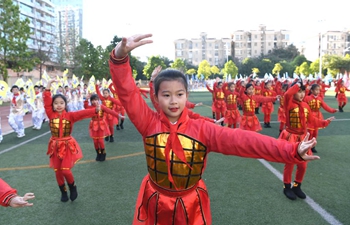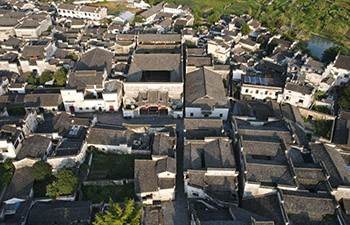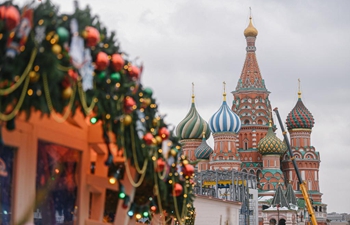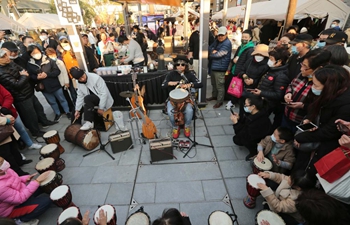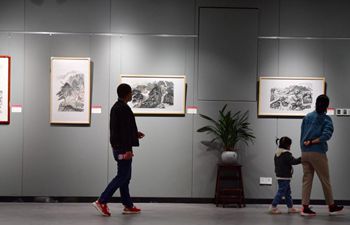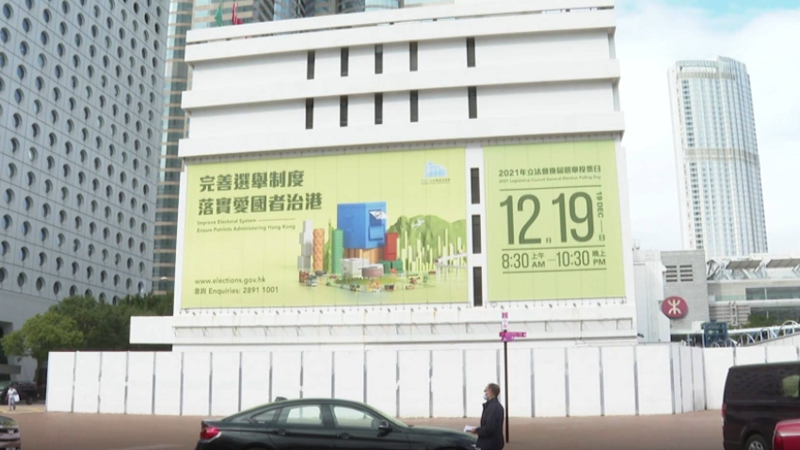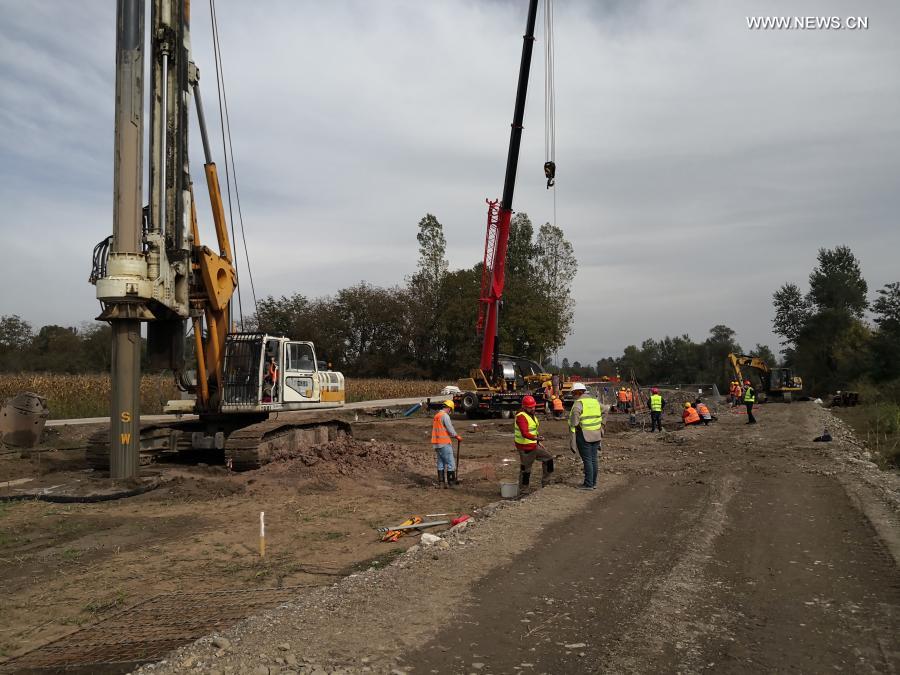
Photo taken on Oct. 6, 2020 shows the construction site of the Belgrade-South Adriatic highway, also called the E763, in Serbian. (Xinhua/Shi Zhongyu)
BELGRADE, Dec. 5 (Xinhua) -- The world economy is longing for a quick recovery after a huge blow from the COVID-19 pandemic, while among these efforts in Central and Eastern European Countries (CEECs), contributions from Chinese investment projects under the Belt and Road Initiative (BRI) stand out.
From the Mediterranean to the Baltic, the BRI projects are gradually getting back on track, despite challenges related to worldwide travel restrictions and production stoppage.
OVERCOMING DIFFICULTIES
The equipment of China's Norinco for the construction of the Senj Wind Farm, which arrived during the first wave of the COVID-19 outbreak in Europe, had been stranded in Croatia's Zadar Port for three months.
Thanks to the collaboration and hard work of Chinese and Croatian employees, so far, 50 percent of the contract value has been completed, Liu Zhen, general manager of Norinco's Zagreb branch, told Xinhua.
By the end of this year, 13 wind turbines on the farm will be ready for power generation and 39 wind turbines will be up and running by next April.
At Montenegro's Mt. Mozura, the wind turbines built by the Shanghai Electric Power Company have started spinning as the country's new highway stretches towards the border with Serbia.
The Peljesac Bridge, a 2.4-km-long bridge built by the China Road and Bridge Corporation (CRBC) that will connect the Croatian mainland with the Peljesac Peninsula, is expected to be finished next year. It is an iconic infrastructure project funded by the European Union.
"The COVID-19 pandemic has inevitably delayed our project, as the production of steel box girders was halted, while international travel restrictions left us understaffed," said Lu Shengwei, a representative of the CRBC in Croatia.
To catch up with the schedule, the company even ordered a direct charter flight for its welders, Lu told Xinhua.
As the production of the steel box girders resumed in China after the outbreak was under control, the project began to get back on track.
Once completed, the Belgrade-South Adriatic highway built by the CRBC, also called the E763, will greatly facilitate the transportation of passengers and goods between the Balkans and the hinterland of Europe.
WEATHERING THE PANDEMIC
Since the beginning of the pandemic in Europe in early spring, the Chinese companies have been trying their best to minimize the damage to their businesses and implement their projects.
The Piraeus Port in Greece, Europe's fourth-largest port run by China's COSCO Shipping, marked an increase of 17.8 percent in container terminal revenues, while ship repair revenues rose by 21.8 percent in the first half of 2020.
This way, the company managed to counterbalance the tremendous reduction of revenues from cruise ships and coastal shipping, and marked just a 5.8 percent decrease in turnover in this period.
The Greek newspaper Kathimerini wrote in August that the volume of container handling dropped just by 3 percent, much lower than the 10-percent at U.S. and European ports, and that the Piraeus Port is "weathering the coronavirus pandemic quite well, for the time being."
On the opposite side of the continent, in southeast Poland where thousands of new COVID-19 cases are confirmed daily, the Fabryka Lozysk Tocznych-Krasnik S.A. (FLT-Krasnik), a bearings manufacturer that was acquired by the Chinese Tri-Ring Group, finds ways to maintain producing about 1,500 types of bearings.
The COVID-19 crisis first paralyzed their logistics and sales, but this has been overcome as European countries lifted transportation lockdowns, Grzegorz Jasinski, president of the FLT-Krasnik, told Xinhua.
"The company saw a tremendous bounce-back in sales, even a noticeable increase in the third quarter compared to 2019," he said.
Despite temporary losses and difficult operation, the company maintained all of its 1,650 employees.
CARING FOR PEOPLE
Spasenija, 93, lives with her 66-year-old daughter Milijana near the new Ulog Hydropower plant which is being constructed by China's Sinohydro in Kalinovik, some 90 km south of Sarajevo, capital of Bosnia and Herzegovina.
For decades their only income was Spasenija's pension until the Chinese company arrived and decided to rent their land for three years. Spasenija also got a steady income by providing potatoes and vegetables to Sinohydro.
The project has brought many jobs to local residents, who traditionally make a living in agriculture, forestry and fishing, and it has boosted trade and services in the local neighborhood as well.
"The Chinese people working on this project have not only helped me financially, but also assured me they are true friends ... They helped me excavate the trench and prepare wood for winter with their machines," she told Xinhua.
Back in Greece, Manos Tsakiltzis, a 54-year-old bus driver, recalled how he had lost his job when the virus struck the tourism industry earlier this year.
"The lockdown and the late start of the summer season with just a small percentage of arrivals compared to past years turned everything upside down in my life, my family's life," he said.
Things changed for better after he was hired as a short-term truck driver at the Piraeus Port.
Tsakiltzis said the protective measures implemented by the port were excellent and it is "a great pleasure" to work with his Chinese colleagues.
"I really appreciate it," Tsakiltzis said, referring to this job opportunity, adding that it has helped him and his family make a living.
Other BRI projects across the region are benefiting the local community in similar ways while trying to stay on track with the development schedules. Enditem

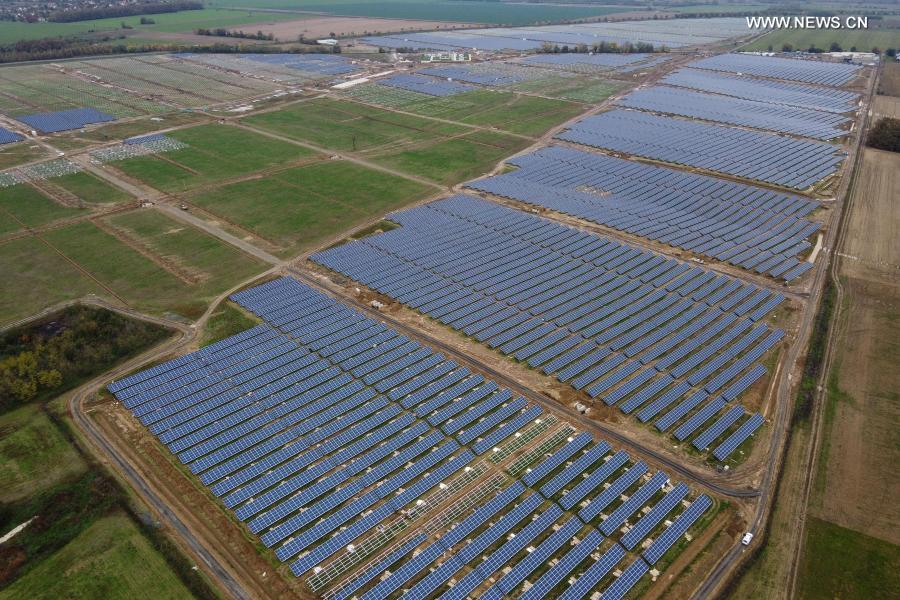
Photo taken on Oct. 30, 2020 shows the Kaposvar 100MW Photovoltaic Power Plant under construction in Kaposvar, Hungary. (Photo by Attila Volgyi/Xinhua)
